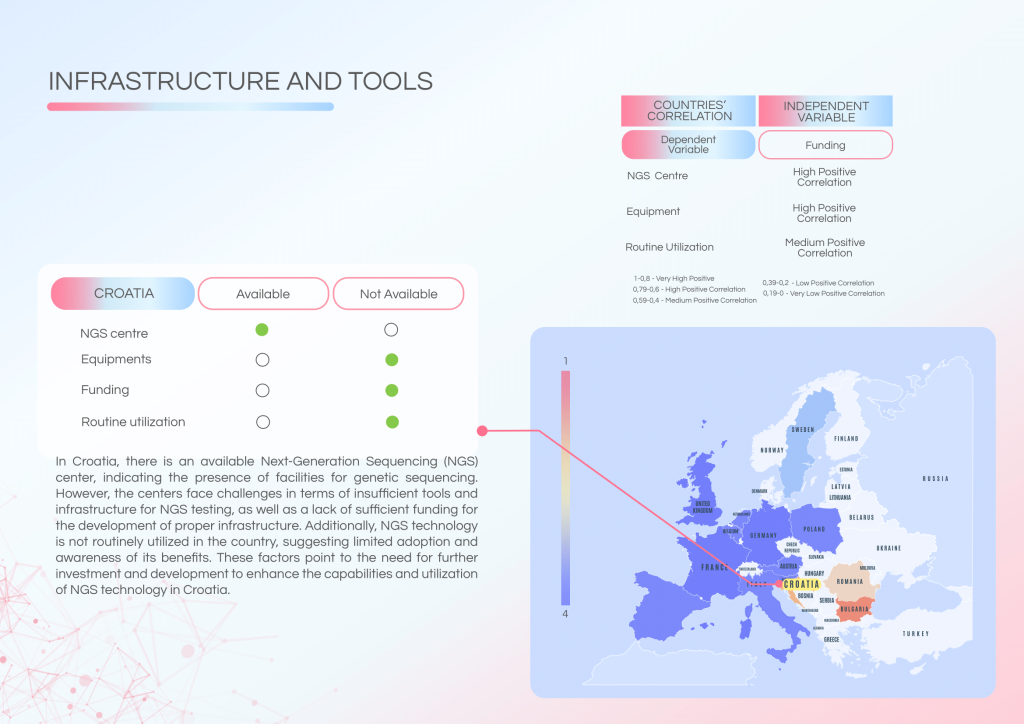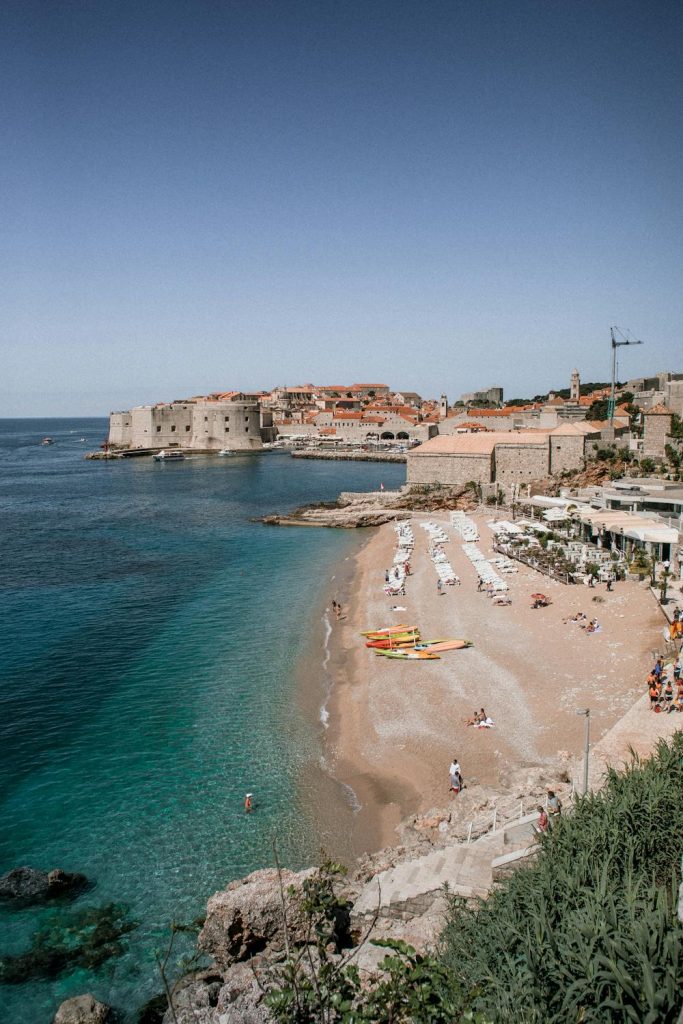Croatia is actively working to strengthen its cancer care ecosystem through investments in data infrastructure and efforts to implement molecular diagnostics. While national registries and some genomic services are in place, several critical components – such as reimbursement, data integration, and clinical quality oversight – require substantial improvement. The two factsheets below provide a snapshot of Croatia’s current landscape and the policy actions needed to fully unlock the potential of personalised medicine.
_______________________________________________________________________________
Quick access
Explore Croatia’s progress across two key areas of personalised cancer care. One factsheet explores the national health data ecosystem, while the other analyses the state of molecular diagnostics and NGS implementation.
Click below to access each document directly.
Revolutionising Health Data Uptake
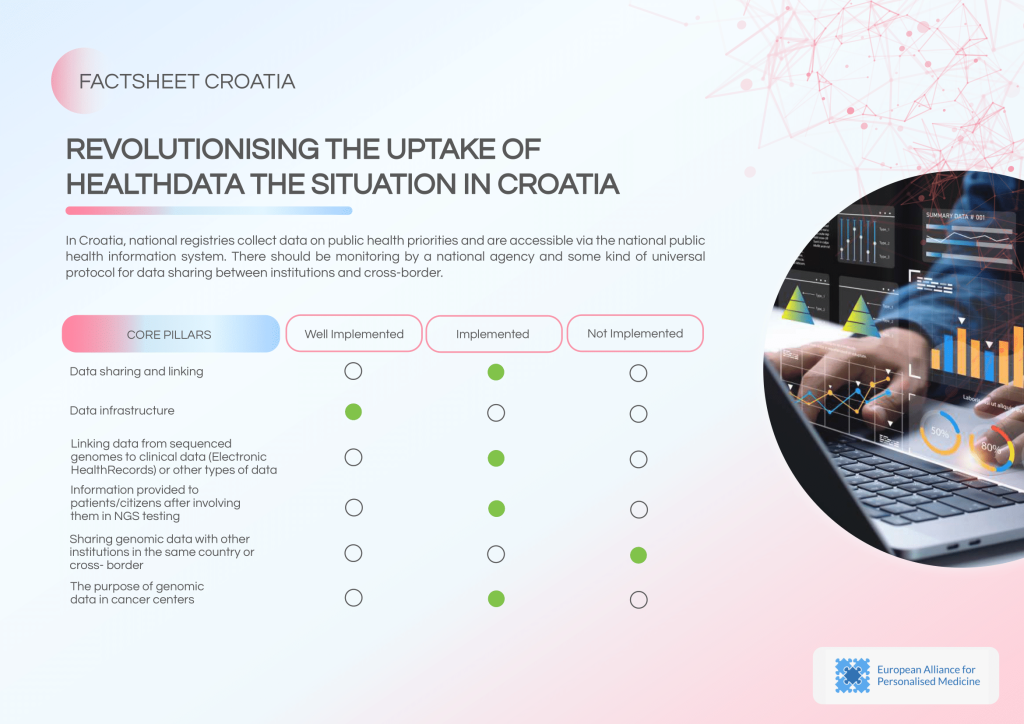
Croatia has made progress in structuring national data systems, with registries that support public health tracking and cancer data collection. These are accessible via the national public health information system. Still, major gaps remain in EHR integration, cross-border data sharing, and consistent communication with patients following NGS testing.
Current strengths of the system include:
- A national Cancer Registry requiring mandatory submission of pseudoanonymised data.
- Integration of genomic and clinical data is occurring regularly in many cancer centres.
- Potential for broader data pseudonymisation, aligned with EU privacy standards.
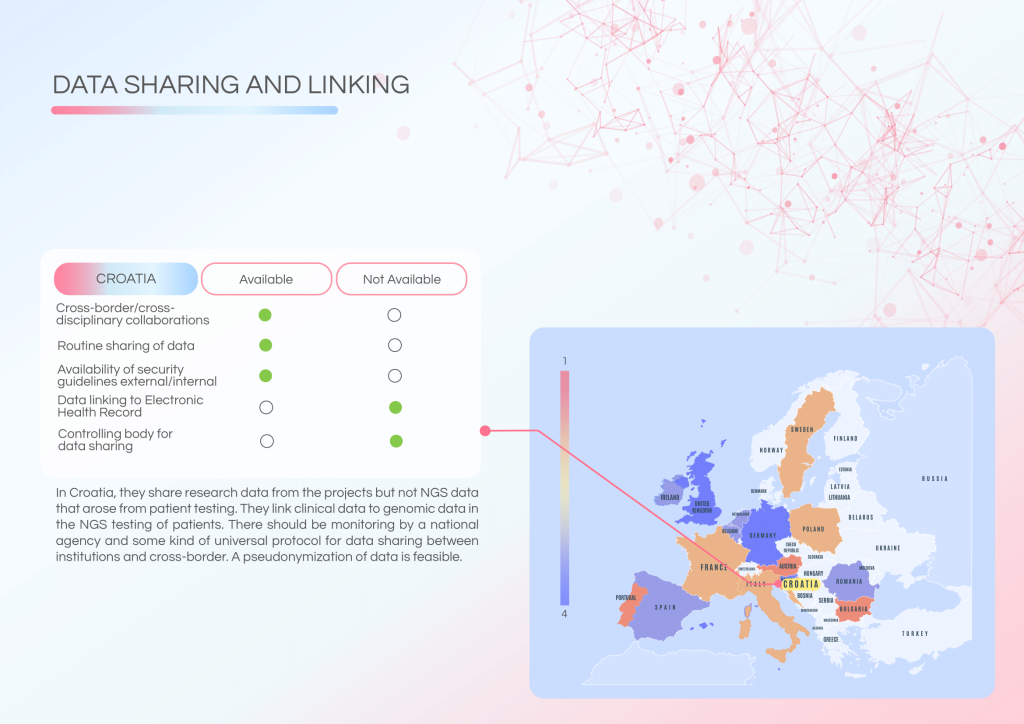
Challenges to address:
- Absence of a centralised data-sharing authority to govern cross-institutional standards.
- Lack of a unified protocol for sharing data across borders and between stakeholders.
- Patient-facing reports and communication post-genetic testing vary significantly in quality and format.
Recommended policy actions:
- Create a national oversight body for health data governance and secure exchange.
- Develop harmonised communication standards for genomic test results.
- Support wider participation in cross-border data collaborations to support research and care.
Revolutionising Molecular Diagnostics
Croatia is at an early stage in the adoption of molecular diagnostics. While NGS facilities and tumour boards exist, the technology is not yet routinely used in clinical settings. Limited infrastructure, lack of reimbursement, and low awareness among providers are key barriers to progress.
Existing strengths include:
- A national NGS centre with basic testing capacity.
- Functioning Molecular Tumour Boards that conduct consultations for select patient cases.
- Ongoing development of educational programmes and workshops to improve professional awareness.
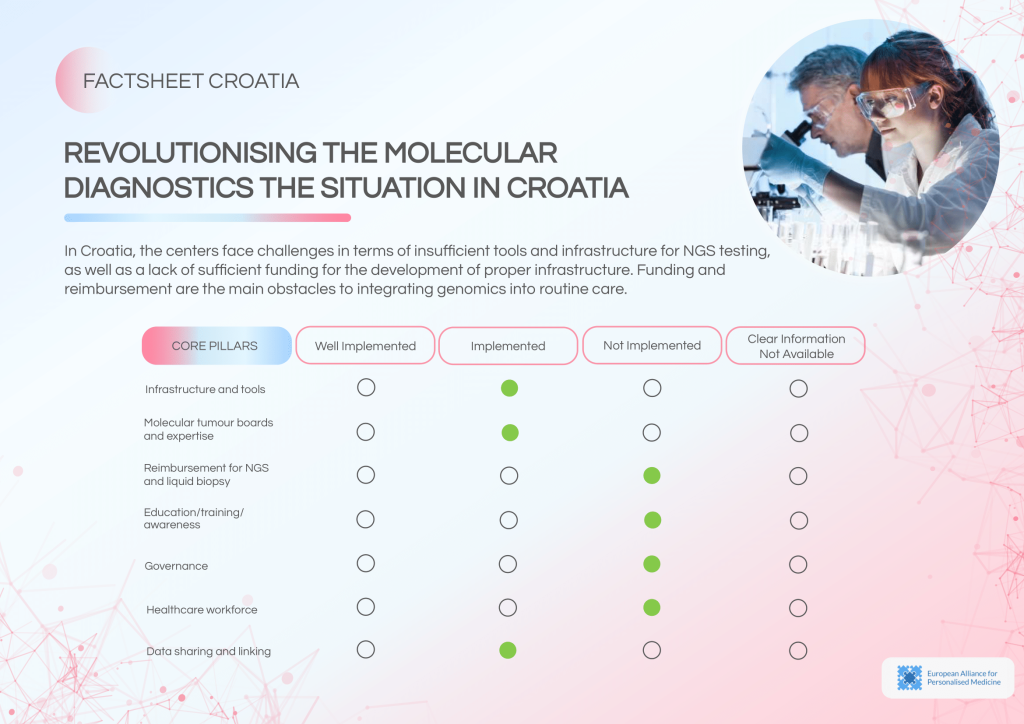
Structural weaknesses:
- Underfunded infrastructure and insufficient reimbursement schemes for NGS and liquid biopsy.
- No ISO-accredited labs and minimal internal clinical governance mechanisms.
- Healthcare workforce shortages and low NGS-specific training across medical education pathways.
Policy actions needed:
- Establish sustainable public funding and reimbursement frameworks for advanced diagnostics.
- Support capacity building through coordinated academic and professional training programmes.
- Implement external quality assessment for all NGS testing providers and move toward accreditation.
